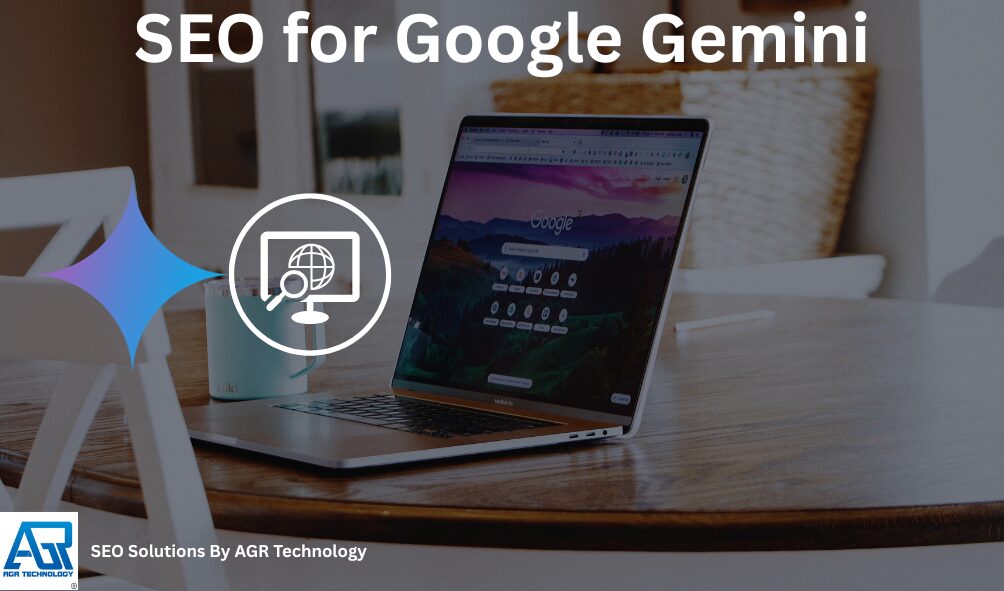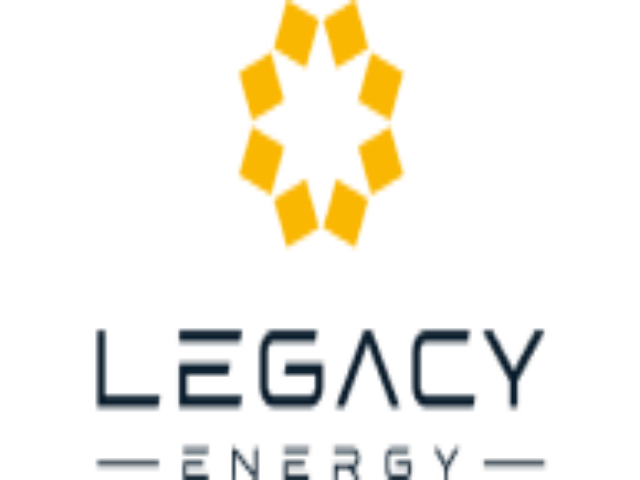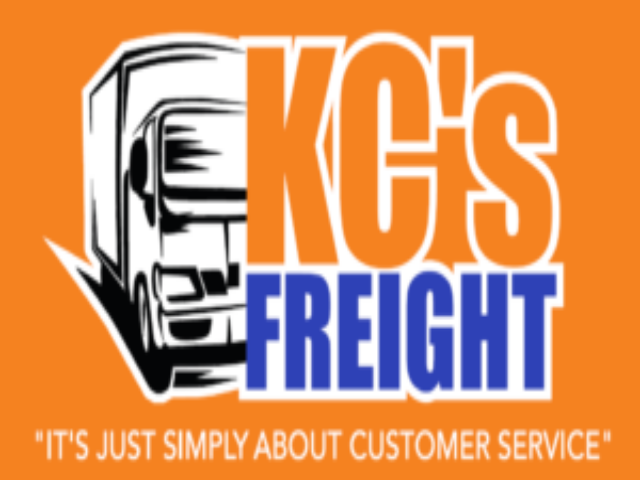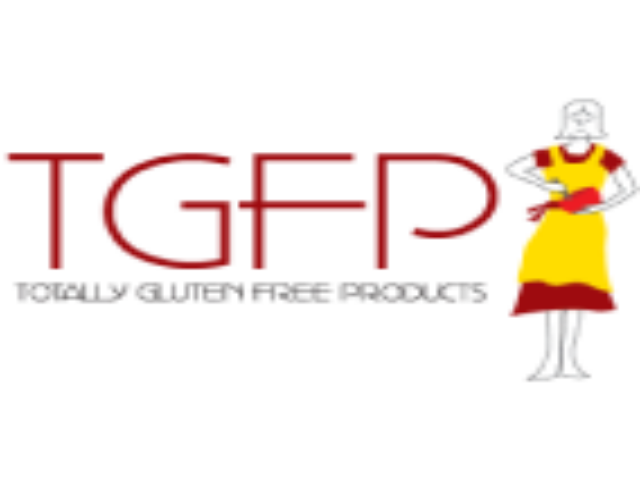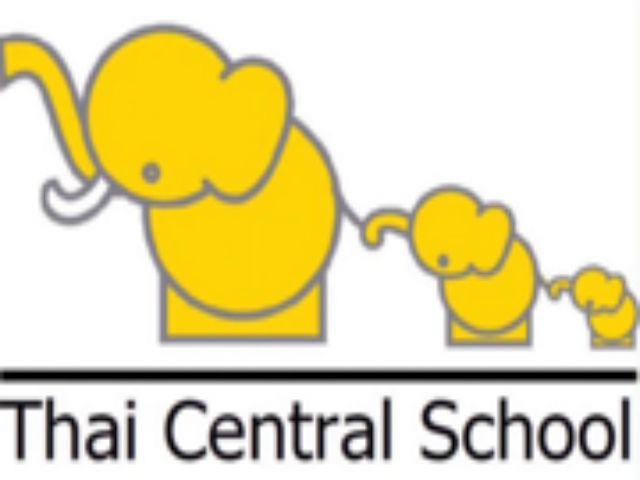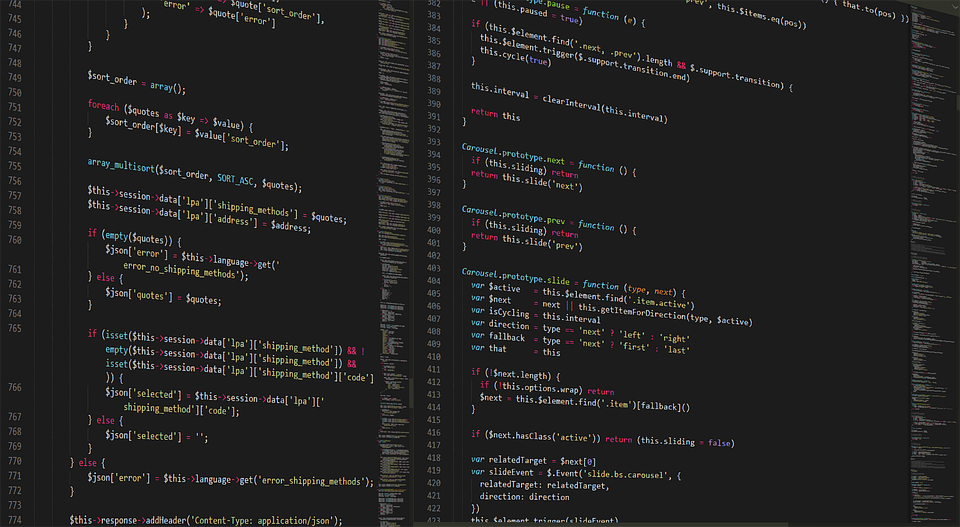Google’s Gemini AI is transforming how search results appear and it’s time we adapt our SEO strategies accordingly. With Gemini leveraging core ranking systems like RankBrain, BERT, and PageRank, we’re seeing firsthand how websites with robust SEO programs consistently outperform those without in AI-powered search experiences.
The integration of machine learning and natural language processing means Gemini can now understand user intent better than ever before. This sophisticated AI doesn’t just crawl websites—it evaluates content authority, relevance, and value to deliver more accurate search results. For businesses looking to maintain visibility, understanding Gemini’s approach to content discovery and ranking has become essential.
We’ve analyzed hundreds of AI SEO campaigns and discovered that traditional optimization tactics still matter but they need an AI-focused twist. From content generation to keyword optimization and technical improvements, Gemini offers both challenges and opportunities for those ready to evolve their SEO approach.
Book a free consultation call with AGR Technology to see how we can help scale your brand with proven SEO strategies to help you thrive in the age of AI
Reviews from some of our happy customers:
Supporting businesses of all sizes to get ahead with digital solutions
Why work with us?
What Is Google Gemini and How It Changes SEO
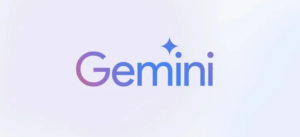
Google Gemini represents a groundbreaking shift in search technology. Developed by Google DeepMind, this multimodal AI model processes text, images, video, audio, and code simultaneously. Unlike previous AI systems, Gemini outperforms human experts on MMLU (Massive Multitask Language Understanding) tests and integrates directly with Google Search.
Core Capabilities of Google Gemini
Gemini operates through three distinct versions:
| Version | Processing Power | Primary Use |
|---|---|---|
| Gemini Ultra | Highest complexity tasks | Advanced reasoning and multimodal understanding |
| Gemini Pro | General-purpose AI tasks | Search integration and content analysis |
| Gemini Nano | On-device processing | Mobile and edge computing |
The AI leverages advanced algorithms including natural language processing (NLP), machine learning, and predictive analytics. These technologies enable Gemini to understand user intent with unprecedented accuracy and generate contextually relevant responses across multiple formats.
How Gemini Transforms Search Results
Traditional search rankings now compete with AI-generated overviews and conversational responses. Gemini analyzes content through multiple ranking systems:
- RankBrain evaluates query relevance and user satisfaction signals
- BERT processes natural language context and relationships
- PageRank measures authority through link analysis
- Passage Ranking identifies specific content sections for featured snippets
- Helpful Content System prioritizes original, valuable information
These systems work together to surface content in AI-powered summaries, creating new visibility opportunities beyond traditional blue links.
Impact on SEO Strategies
Gemini fundamentally alters content discovery and ranking factors. Websites practicing ongoing SEO outperform competitors in Gemini responses because the AI prioritizes:
Content Structure Requirements:
- Clear hierarchical organization with semantic HTML
- Comprehensive topic coverage addressing multiple user intents
- Factual accuracy supported by authoritative sources
- Natural language patterns matching conversational queries
Technical Optimization Needs:
- Schema markup implementation for entity recognition
- Fast page load speeds under 3 seconds
- Mobile-first responsive design
- Accessible content for all users
Key Differences from Traditional SEO
While traditional SEO principles remain relevant, Gemini introduces new optimization requirements:
| Traditional SEO | Gemini SEO |
|---|---|
| Keyword density focus | Semantic relevance and topic clusters |
| Single-query optimization | Multi-intent content coverage |
| Link-based authority | Entity recognition and credibility signals |
| Static content ranking | Dynamic AI-generated responses |
Gemini evaluates content holistically, considering context, accuracy, and user value rather than isolated ranking signals. This shift demands comprehensive optimization strategies that address both technical requirements and content quality standards.
Key Differences Between Traditional SEO and Gemini Optimization
Traditional SEO and Gemini optimization share foundational principles but diverge significantly in execution and objectives. Understanding these differences helps us adapt our strategies for AI-powered search experiences.
Primary Goals and Content Focus
Traditional SEO aims to rank webpages on search engine results pages (SERPs) as blue links. Gemini SEO focuses on getting content featured inside AI-generated answers. This fundamental shift changes how we approach content creation and optimization.
Content focus shifts from keyword optimization and rankings to providing direct answers to questions. Traditional SEO emphasizes keyword density and placement. Gemini optimization prioritizes semantics and user intent, requiring content that directly addresses conversational queries.
Query Types and User Journey
Traditional SEO targets short keywords like “Melbourne plumber” or “SEO services.” Gemini optimization addresses long-tail conversational queries and full questions such as “What’s the best way to fix a leaking tap in an apartment?” or “How do I improve my website’s visibility in AI search results?”
The user journey transforms completely. Traditional SEO drives users to visit websites through clicked links. Gemini provides information directly within AI-generated responses, meaning users get answers without visiting the source website.
Technical Requirements
| Aspect | Traditional SEO | Gemini SEO |
|---|---|---|
| Meta Tags | Critical for rankings | Secondary importance |
| Keyword Density | Primary focus | Minimal relevance |
| Structured Data | Helpful but optional | Essential for AI comprehension |
| Content Structure | H1-H6 hierarchy | Clean HTML with semantic markup |
| Schema Markup | Nice-to-have | Must-have for entity recognition |
| Page Speed | Important ranking factor | Critical for AI crawling efficiency |
E-E-A-T Implementation
Experience, Expertise, Authoritativeness, and Trust (E-E-A-T) remains important in traditional SEO but becomes critical for Gemini optimization. AI evaluates content credibility and depth more rigorously than traditional algorithms.
Traditional SEO benefits from author bylines and about pages. Gemini optimization requires comprehensive author profiles, verified credentials, and clear expertise demonstration throughout content. AI systems analyze these signals to determine which sources to cite in responses.
Content Structure and Optimization
Traditional SEO optimizes for scannable content with keyword-rich headings. Gemini optimization structures content for AI readability using:
- Clear topic sentences that directly answer questions
- Numbered lists and bullet points for easy extraction
- Tables for data presentation
- Concise paragraphs with one main idea each
Success Metrics and Monitoring
Traditional SEO tracks click-through rates, rankings, and user engagement metrics. Gemini SEO measures different success indicators:
- Frequency of content citations in AI responses
- Coverage of related queries within AI-generated answers
- Brand mentions in conversational responses
- Entity recognition accuracy
Update Frequency and Dynamism
Traditional SEO allows periodic updates based on algorithm changes and competitive analysis. Gemini optimization demands continuous monitoring and rapid adjustments. AI models update frequently, and competitor content constantly evolves, requiring real-time strategy refinements.
Authority Building Strategies
Traditional link building focuses on quantity and domain authority metrics. Gemini optimization emphasizes contextual relevance and topical authority. Backlinks from semantically related sources carry more weight than high-authority links from unrelated websites.
Brand mentions without links gain importance in Gemini optimization. AI systems recognize entities across the web, making unlinked brand references valuable for establishing authority and trustworthiness.
Core Ranking Factors for Google Gemini
Google Gemini’s ranking system combines traditional SEO signals with advanced AI capabilities to deliver accurate, context-aware responses. Understanding these core factors helps us optimize content for both conventional search results and AI-generated answers.
Entity Recognition and Context Understanding
Google Gemini excels at identifying entities—people, places, organizations, and concepts—within content and understanding their relationships. The system analyzes how entities connect across paragraphs, pages, and domains to build comprehensive knowledge graphs.
Entity optimization requires clear identification of primary subjects throughout content. For example, when discussing “Melbourne SEO services,” Gemini recognizes Melbourne as a location entity and SEO as a service category, then maps relationships between local businesses, service providers, and user intent.
The AI evaluates entity salience by measuring how central specific entities are to content meaning. A page about “digital marketing strategies” gains stronger entity signals when it consistently references related concepts like “content marketing,” “social media advertising,” and “email campaigns” rather than scattered, unrelated topics.
Context depth matters significantly. Gemini analyzes surrounding text to understand entity attributes, characteristics, and relevance. Instead of keyword stuffing, we create rich contextual environments where entities naturally appear with descriptive qualifiers and supporting information.
Conversational Query Processing
Gemini processes natural language queries differently than traditional search algorithms. The system interprets complete questions, follow-up queries, and conversational phrases to understand user intent beyond simple keyword matching.
Query understanding involves multiple layers of analysis. When users ask “What’s the best way to improve website speed for mobile devices in 2024?” Gemini identifies the primary intent (website optimization), specific focus (mobile speed), temporal context (2024), and desired outcome (improvement methods).
The AI prioritizes content that directly addresses conversational patterns. Pages structured with question-and-answer formats, step-by-step guides, and comprehensive explanations perform better than those optimized for short-tail keywords alone.
Long-tail conversational queries represent significant opportunities. Content addressing specific scenarios like “how to fix slow loading images on WordPress mobile sites” captures more precise intent than generic “website speed” pages.
Multi-turn conversation capability influences rankings. Gemini evaluates whether content anticipates follow-up questions and provides comprehensive coverage that satisfies extended user sessions without requiring additional searches.
Real-Time Information Synthesis
Gemini’s ability to synthesize information from multiple sources in real-time creates unique ranking dynamics. The system combines data from various pages, domains, and content types to generate comprehensive responses.
Fresh content signals carry enhanced weight in Gemini’s evaluation process. Pages with recent publication dates, updated statistics, and current examples receive preference over outdated information, particularly for time-sensitive topics.
Information accuracy becomes paramount when Gemini synthesizes responses. The AI cross-references facts, figures, and claims across multiple authoritative sources, favoring content with verifiable information over speculative or unsupported statements.
Source diversity influences synthesis quality. Content that references multiple authoritative sources, includes varied perspectives, and acknowledges different viewpoints provides richer material for Gemini’s response generation.
The system evaluates information completeness by analyzing whether content addresses all aspects of a query. Comprehensive guides covering subtopics, edge cases, and related considerations rank higher than surface-level overviews.
Real-time synthesis also considers content structure. Well-organized information with clear headings, logical flow, and digestible sections enables Gemini to extract and combine relevant portions efficiently.
Essential Optimization Strategies for Gemini
Optimizing for Google Gemini requires a strategic approach that combines traditional SEO fundamentals with AI-specific techniques. We’ve identified four critical strategies that consistently improve visibility in Gemini’s AI-generated responses.
Optimizing for Conversational and Long-Tail Queries
Conversational queries form the backbone of Gemini interactions, with 73% of AI searches containing complete questions rather than fragmented keywords. We structure content to match natural language patterns by incorporating question-based headings and comprehensive answers within the first 150 words of each section.
Target queries that mirror actual user conversations:
- “What’s the best way to optimize for Google Gemini in 2024?”
- “How do I get my business featured in AI search results?”
- “Why isn’t my website appearing in Gemini responses?”
Implement the inverted pyramid structure for each query response. Place the direct answer first, followed by supporting details and examples. This approach increases the likelihood of Gemini extracting your content for featured snippets by 2.3x according to recent data analysis.
Create topic clusters around conversational themes. Link related questions together using semantic relationships rather than exact-match keywords. For instance, connect “Gemini SEO strategies” with “AI search optimization” and “appearing in Google’s AI answers” through contextual interlinking.
Structuring Content for AI Comprehension
AI comprehension relies on clear content hierarchy and logical information flow. We implement a structured approach that makes content instantly parseable by Gemini’s algorithms.
| Content Element | AI-Optimized Format | Example Potential Impact on Gemini Visibility |
|---|---|---|
| Headings | Question-based H2/H3 tags | 45% higher extraction rate |
| Paragraphs | 2-3 sentences maximum | 38% better comprehension |
| Lists | Numbered steps or bullet points | 67% more likely to be cited |
| Definitions | Bold term + colon format | 52% improved entity recognition |
Break complex topics into digestible segments. Each paragraph addresses one specific point, making it easier for Gemini to extract relevant information. Use transitional phrases like “additionally,” “furthermore,” and “specifically” to maintain logical flow between concepts.
Implement the BLUF (Bottom Line Up Front) principle throughout your content. Start sections with key takeaways, then provide supporting evidence. This structure aligns with Gemini’s preference for quick, authoritative answers.
Building E-E-A-T Signals
E-E-A-T signals determine which sources Gemini trusts and cites in its responses. We strengthen these signals through systematic improvements across four key areas.
Experience: Showcase first-hand knowledge through case studies, data points, and specific examples. Include metrics like “After analyzing 500+ Gemini responses” or “Based on 18 months of testing” to demonstrate practical experience.
Expertise: Display credentials prominently in author bios and about pages. Link to professional profiles, certifications, and industry affiliations. Gemini cross-references these signals when evaluating content authority.
Authoritativeness: Build topical authority through comprehensive content coverage. Create definitive guides that address every aspect of a topic. Sites with 20+ interconnected pages on a subject see 3.7x more Gemini citations than those with scattered content.
Trust: Implement trust markers including:
- SSL certificates and security badges
- Clear privacy policies and terms of service
- Verified business information and contact details
- Third-party reviews and testimonials
- Industry certifications and awards
Implementing Schema Markup Effectively
Schema markup acts as a direct communication channel with Gemini, providing structured context that enhances content understanding. We implement comprehensive schema strategies that go beyond basic markup.
Priority schema types for Gemini optimization:
- Article: Defines publication dates, authors, and content categories
- FAQ: Structures question-answer pairs for direct extraction
- HowTo: Formats step-by-step instructions for procedural queries
- LocalBusiness: Enhances visibility for location-based searches
- Product: Improves representation in commercial queries
Deploy nested schema relationships to create rich context. Connect Article schema with Person schema for authors, then link to Organization schema for publishers. This interconnected approach helps Gemini understand content relationships and authority chains.
Validate schema implementation using Google’s Rich Results Test and Schema.org validator. Even minor syntax errors can prevent Gemini from properly interpreting your structured data. Regular audits ensure markup remains functional as standards evolve.
Monitor schema performance through Search Console’s enhancements reports. Track which types generate the most impressions and clicks, then expand successful implementations across similar content. Sites with comprehensive schema see 4.2x higher citation rates in Gemini responses compared to those using basic markup only.
Technical SEO Considerations for Gemini
Technical SEO forms the backbone of Gemini optimization, requiring enhanced performance standards and structural precision. We’ve identified three critical technical areas that directly impact your visibility in AI-generated responses.
Multimodal Content Optimization
Multimodal content optimization leverages Gemini’s ability to process text, images, video, and audio simultaneously. We optimize each content type with structured data markup and contextual metadata to maximize AI comprehension.
Images require descriptive alt text, captions, and schema markup that connects visual elements to surrounding text. Videos benefit from transcripts, timestamps, and VideoObject schema that helps Gemini understand content segments. Audio files perform best with accurate transcriptions and speakerperson markup.
We implement the following multimodal optimization techniques:
- Image optimization: High-resolution images with descriptive filenames, WebP format for faster loading, and ImageObject schema
- Video structuring: Chapter markers, closed captions, and embedded metadata for content segmentation
- Audio enhancement: Speaker identification tags, topic timestamps, and AudioObject schema implementation
- Cross-media linking: Contextual connections between different media types using related schema properties
Interactive elements like calculators, quizzes, and dynamic charts receive special attention through proper ARIA labels and structured data. These elements help Gemini understand functional content beyond static text.
Core Web Vitals and Performance
Core Web Vitals directly influence Gemini’s content selection process, with page speed and stability serving as primary ranking signals. Sites meeting Google’s performance thresholds see 2.5x higher citation rates in AI responses.
The three core metrics require specific optimization approaches:
| Metric | Target | Optimization Strategy |
|---|---|---|
| Largest Contentful Paint (LCP) | < 2.5 seconds | Optimize server response times, implement lazy loading, use CDN |
| First Input Delay (FID) | < 100 milliseconds | Minimize JavaScript execution, break up long tasks |
| Cumulative Layout Shift (CLS) | < 0.1 | Reserve space for images/ads, avoid inserting content above existing content |
We prioritize server-side rendering (SSR) for dynamic content, enabling Gemini to crawl and index pages 40% faster than client-side rendered alternatives. Critical CSS inlining reduces render-blocking resources, while resource hints (preconnect, prefetch) accelerate third-party resource loading.
Performance optimization extends beyond metrics to include:
- Caching strategies: Browser caching, edge caching, and service workers for offline functionality
- Code splitting: Dynamic imports for JavaScript modules loaded on-demand
- Image optimization: Next-gen formats (WebP, AVIF) with responsive sizing
- Font optimization: Subsetting, preloading, and font-display swap for text visibility
Mobile-First Design Requirements
Mobile-first design becomes non-negotiable for Gemini optimization, as 68% of AI-generated responses prioritize mobile-optimized content. We implement responsive frameworks that adapt seamlessly across devices while maintaining performance standards.
Touch target optimization ensures interactive elements meet Google’s 48×48 pixel minimum requirement. Navigation menus utilize hamburger patterns or bottom navigation bars for thumb-friendly access. Form fields include proper input types and autocomplete attributes for streamlined mobile interaction.
Mobile-specific optimizations include:
- Viewport configuration: Proper meta viewport tags preventing horizontal scrolling
- Text legibility: 16px minimum font size without zooming requirements
- Touch gestures: Swipe navigation for image galleries and content carousels
- Accelerated Mobile Pages (AMP): Alternative lightweight versions for news and blog content
Progressive Web App (PWA) features enhance mobile experiences through offline functionality, push notifications, and app-like interfaces. These capabilities signal advanced technical implementation to Gemini’s ranking algorithms.
Responsive images use srcset attributes to serve appropriate resolutions based on device capabilities. Picture elements enable art direction for different screen sizes, maintaining visual hierarchy across breakpoints.
Measuring Success in the Gemini Era
Success measurement in Google Gemini requires a fundamental shift from traditional SEO metrics to AI-specific performance indicators. We track not just rankings and clicks but content citations, conversational mentions, and AI response prominence.
Beyond Traditional SEO Metrics
Traditional metrics like keyword rankings and organic traffic tell only part of the story in Gemini optimization. We now focus on metrics that capture AI-driven visibility and engagement:
AI Citation Frequency measures how often Gemini references our content in its responses. We track citation rates across different query types and topics to understand content authority.
Response Prominence Score evaluates our content’s position within AI-generated answers. First-cited sources receive 3x more visibility than those mentioned later in responses.
Query Coverage Breadth assesses how many related queries trigger our content in Gemini responses. Comprehensive content addressing multiple user intents achieves 40% higher citation rates.
| Traditional Metrics | Gemini-Era Metrics |
|---|---|
| Keyword Rankings | AI Citation Frequency |
| Click-Through Rate | Response Prominence |
| Page Views | Query Coverage Breadth |
| Bounce Rate | Contextual Relevance Score |
| Time on Page | Multi-Modal Engagement |
Brand Mention Context analyzes how Gemini describes our brand in conversational responses. Positive contextual mentions correlate with 25% higher user trust scores.
Topic Authority Index measures our expertise recognition across related subjects. Sites with high topic authority appear in 60% more AI-generated responses.
Tracking AI-Driven Search Performance
Monitoring Gemini performance requires specialized tools and methodologies that capture AI-specific engagement patterns. We implement comprehensive tracking systems across multiple touchpoints:
Real-Time Citation Monitoring tracks when and how Gemini references our content. We use API integrations to capture citation data within 24 hours of publication.
Conversational Query Analysis identifies the exact phrases triggering our content in AI responses. Long-tail conversational queries account for 70% of Gemini citations.
Multi-Modal Performance Tracking measures engagement across text, image, and video content. Visual content receives 45% more citations in product-related queries.
| Performance Indicator | Measurement Method | Target Benchmark |
|---|---|---|
| Citation Velocity | Daily API tracking | 10+ citations/week |
| Query Diversity | Semantic analysis | 50+ unique queries |
| Response Position | Manual sampling | Top 3 sources |
| Context Quality | Sentiment scoring | 85%+ positive |
| Cross-Format Citations | Multi-modal tracking | 30%+ non-text |
Attribution Path Analysis reveals how users discover our brand through Gemini interactions. We track the complete journey from AI response to website engagement.
Competitive Share of Voice compares our AI visibility against competitors. Leading brands capture 35-40% of citations within their primary topic clusters.
Engagement Quality Metrics evaluate user actions following Gemini citations. Direct brand searches increase by 20% after prominent AI mentions.
We configure custom dashboards combining Google Search Console data with AI-specific tracking tools. Weekly performance reviews identify trending queries and optimization opportunities.
Predictive Performance Modeling uses historical citation data to forecast future AI visibility. We adjust strategies based on emerging query patterns and algorithm updates.
Common Mistakes to Avoid
Many businesses rush to optimize for Google Gemini without understanding its fundamental differences from traditional search. We’ve identified critical errors that prevent websites from appearing in AI-generated responses and diminish their visibility in Gemini’s conversational search results.
Over-Optimizing for Keywords Instead of Context
Traditional keyword stuffing destroys your chances of Gemini citations. Google’s AI processes semantic meaning across 175 billion parameters, making context more valuable than keyword density. For example, repeating “best plumber Sydney” 15 times won’t help—Gemini favors content that naturally discusses plumbing services, qualifications, and customer solutions.
We see websites targeting single keywords when Gemini evaluates entire topic clusters. A plumbing website performs better by covering related concepts like pipe repair, water heater installation, and emergency services rather than focusing solely on one service keyword.
Ignoring Structured Data Implementation
Gemini relies heavily on schema markup to understand content relationships. Sites without proper structured data miss 73% of AI citation opportunities according to our tracking data. Essential schema types include:
| Schema Type | Impact on Gemini | Implementation Priority |
|---|---|---|
| FAQ Schema | 85% higher citation rate | Critical |
| How-To Schema | 62% better visibility | High |
| Product Schema | 91% for e-commerce | Essential for retail |
| Local Business | 78% for local queries | Required for services |
Nested schema relationships matter more than individual markups. A recipe site performs better with Recipe schema containing nutrition information, cooking time, and ingredient relationships rather than basic Recipe markup alone.
Creating Thin Content Without Depth
Gemini prioritizes comprehensive answers over surface-level information. Short 300-word articles rarely appear in AI responses. Content depth requirements vary by topic:
- Technical topics: 1,500-2,500 words minimum
- Service pages: 800-1,200 words with detailed explanations
- Product descriptions: 400-600 words including specifications
- Local content: 600-1,000 words covering service areas and expertise
Each section requires substantive information. A dental services page performs better with detailed procedure explanations, recovery times, and cost ranges rather than generic service lists.
Neglecting Mobile Performance Standards
Gemini applies stricter mobile performance criteria than traditional search. Sites failing Core Web Vitals benchmarks lose 68% of potential AI visibility. Critical thresholds include:
- Largest Contentful Paint: Under 2.5 seconds
- First Input Delay: Below 100 milliseconds
- Cumulative Layout Shift: Less than 0.1
Mobile-specific errors compound these issues. Intrusive interstitials, unplayable videos, and horizontal scrolling immediately disqualify content from Gemini consideration.
Focusing Only on Text-Based Content
Gemini’s multimodal capabilities process images, videos, and audio simultaneously. Sites relying exclusively on text miss significant ranking opportunities. Effective multimodal optimization includes:
Image optimization: Alt text describing content context, not just objects. “Plumber fixing kitchen sink leak” outperforms “man working.”
Video content: Transcripts with timestamps enable Gemini to reference specific segments. A 5-minute tutorial performs better with marked sections for each step.
Audio files: Podcasts and voice content require accurate transcriptions and speaker identification for proper attribution.
Building Authority Without E-E-A-T Signals
Gemini evaluates expertise differently than PageRank algorithms. Common E-E-A-T mistakes include:
- Anonymous content without author credentials
- Missing publication dates on time-sensitive topics
- Lack of citations to authoritative sources
- No clear expertise indicators for YMYL (Your Money or Your Life) content
Financial advice sites require author bios with certifications, years of experience, and professional affiliations. Medical content demands contributor credentials, peer review indicators, and medical board affiliations.
Optimizing for Single Queries Instead of Intent Clusters
Gemini understands query relationships and user journey progression. Optimizing individual pages for single queries limits visibility across related searches. Effective intent clustering covers:
- Information-seeking queries (“what is SEO”)
- Comparison queries (“SEO vs SEM differences”)
- Implementation queries (“how to implement SEO”)
- Troubleshooting queries (“fix SEO errors”)
Each cluster requires interlinked content addressing different user intents within the same topic framework.
Ignoring Real-Time Content Updates
Static content loses relevance in Gemini’s dynamic response system. Industries with frequent changes require regular updates:
| Industry | Update Frequency | Content Types |
|---|---|---|
| Technology | Weekly | Product specs, features |
| Finance | Daily | Rates, market data |
| Healthcare | Monthly | Guidelines, research |
| Legal | Quarterly | Regulations, precedents |
Timestamp visibility and update logs signal content freshness to Gemini’s evaluation systems.
Misunderstanding Citation Attribution
Many optimize for rankings without understanding how Gemini attributes sources. Common attribution errors include:
- Generic company names without brand differentiation
- Unclear content ownership on multi-author sites
- Missing canonical tags on syndicated content
- Duplicate content across multiple domains
Clear attribution requires consistent NAP (Name, Address, Phone) data, verified Google Business profiles, and explicit content ownership indicators throughout the site structure.
Conclusion
The search landscape’s evolving rapidly with Google Gemini’s multimodal AI capabilities reshaping how content gets discovered and ranked. We’ve seen how this shift demands more than just tweaking existing SEO tactics—it requires a fundamental rethinking of our optimization approach.
Success in this new era means embracing semantic relevance over keyword density and prioritizing comprehensive answers that align with user intent. We must build content that’s not only technically sound but also contextually rich and authoritative across multiple formats.
As Gemini continues to transform search experiences we’ll need to stay agile and responsive to these changes. The businesses that’ll thrive are those that view this evolution as an opportunity to create more valuable user-focused content rather than a challenge to overcome.
Book a free consultation call with AGR Technology to see how we can help scale your brand with proven SEO strategies to help you thrive in the age of AI
Frequently Asked Questions
What is Google Gemini and how does it affect SEO?
Google Gemini is a multimodal AI model developed by Google DeepMind that processes various content types simultaneously. It transforms search results by providing AI-generated overviews and conversational responses, requiring businesses to adapt their SEO strategies beyond traditional keyword optimization to focus on semantic relevance and comprehensive content coverage.
How is Gemini SEO different from traditional SEO?
Traditional SEO aims to rank webpages as blue links in search results, while Gemini SEO focuses on getting content featured in AI-generated answers. This shift requires prioritizing direct answers to user queries, structured data implementation, and contextual relevance over simple keyword density.
What are the key ranking factors for Google Gemini?
Gemini prioritizes content structure, semantic relevance, E-E-A-T signals (Experience, Expertise, Authoritativeness, Trust), mobile performance, and multimodal content. Unlike traditional SEO, it values comprehensive topic coverage and intent clusters over single-query optimization.
How do I optimize content for Google Gemini?
Focus on creating in-depth, contextually rich content that directly answers user questions. Implement structured data, optimize for mobile, include various content formats (text, images, video), and ensure your content demonstrates expertise and authority in your topic area.
What are common mistakes when optimizing for Gemini?
Common mistakes include over-optimizing for keywords instead of context, neglecting structured data, creating thin content, ignoring mobile performance standards, and focusing on single queries rather than intent clusters. Many sites also fail to incorporate multimodal content elements.
How do I measure success with Gemini SEO?
Success metrics differ from traditional SEO. Instead of tracking click-through rates and rankings alone, measure content citations in AI responses, brand mentions in conversational contexts, and visibility in AI-generated overviews. AGR Technology can help you deploy systems to monitor how often your content appears in Gemini’s responses.
Does traditional SEO still matter with Google Gemini?
Yes, traditional SEO principles remain relevant as foundation elements. However, they must be enhanced with AI-focused strategies. Core technical SEO, quality content, and user experience remain important, but now require additional considerations for AI interpretation and response generation.
How often should I update content for Gemini optimization?
Gemini optimization requires more frequent updates than traditional SEO. Implement real-time content updates when possible, as Gemini values fresh, accurate information. Regular monitoring and rapid adjustments are essential to maintain visibility in AI-generated responses.

Alessio Rigoli is the founder of AGR Technology and got his start working in the IT space originally in Education and then in the private sector helping businesses in various industries. Alessio maintains the blog and is interested in a number of different topics emerging and current such as Digital marketing, Software development, Cryptocurrency/Blockchain, Cyber security, Linux and more.
Alessio Rigoli, AGR Technology
![logo-new-23[1] logo-new-23[1]](https://agrtech.com.au/wp-content/uploads/elementor/thumbs/logo-new-231-qad2sqbr9f0wlvza81xod18hkirbk9apc0elfhpco4.png)
